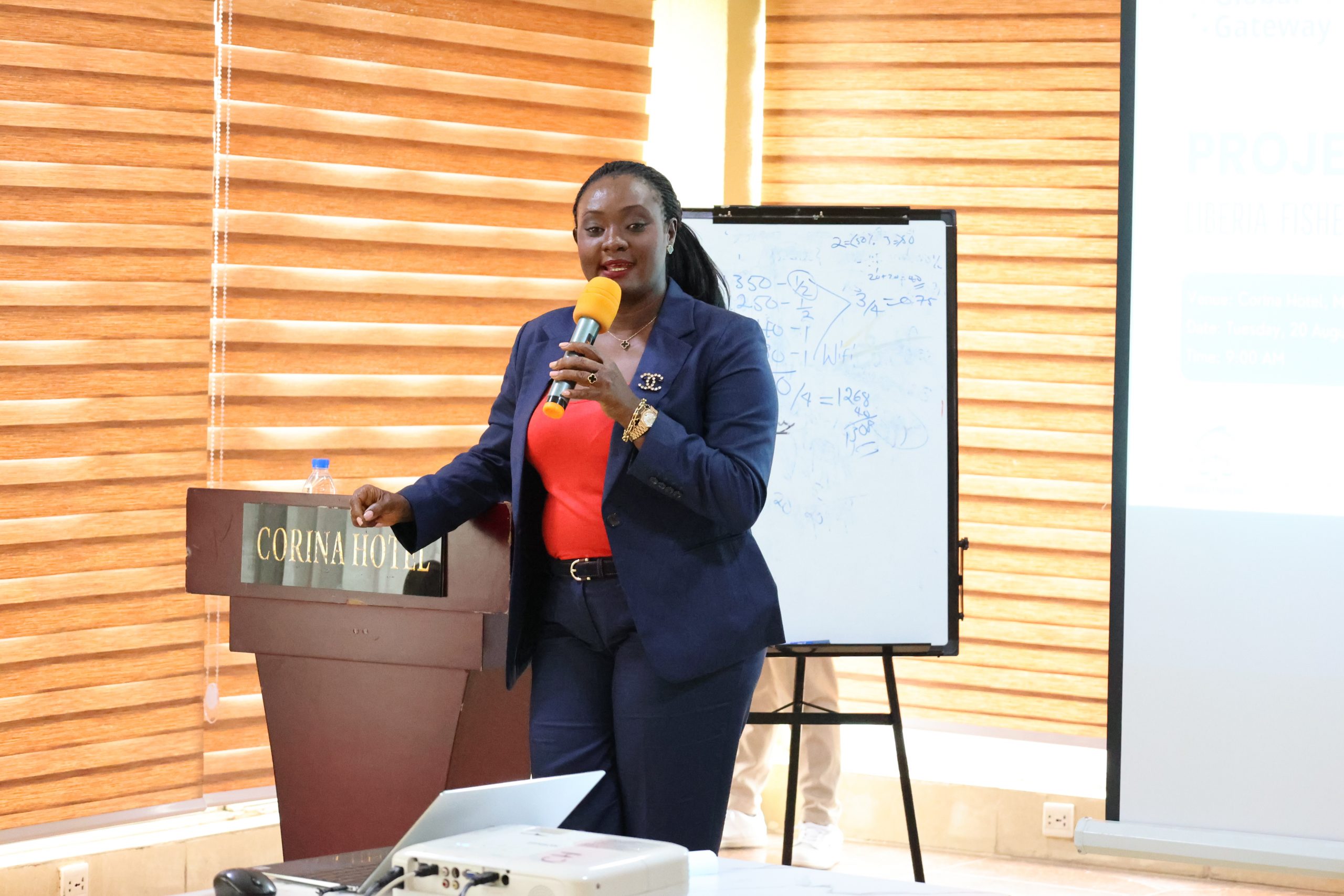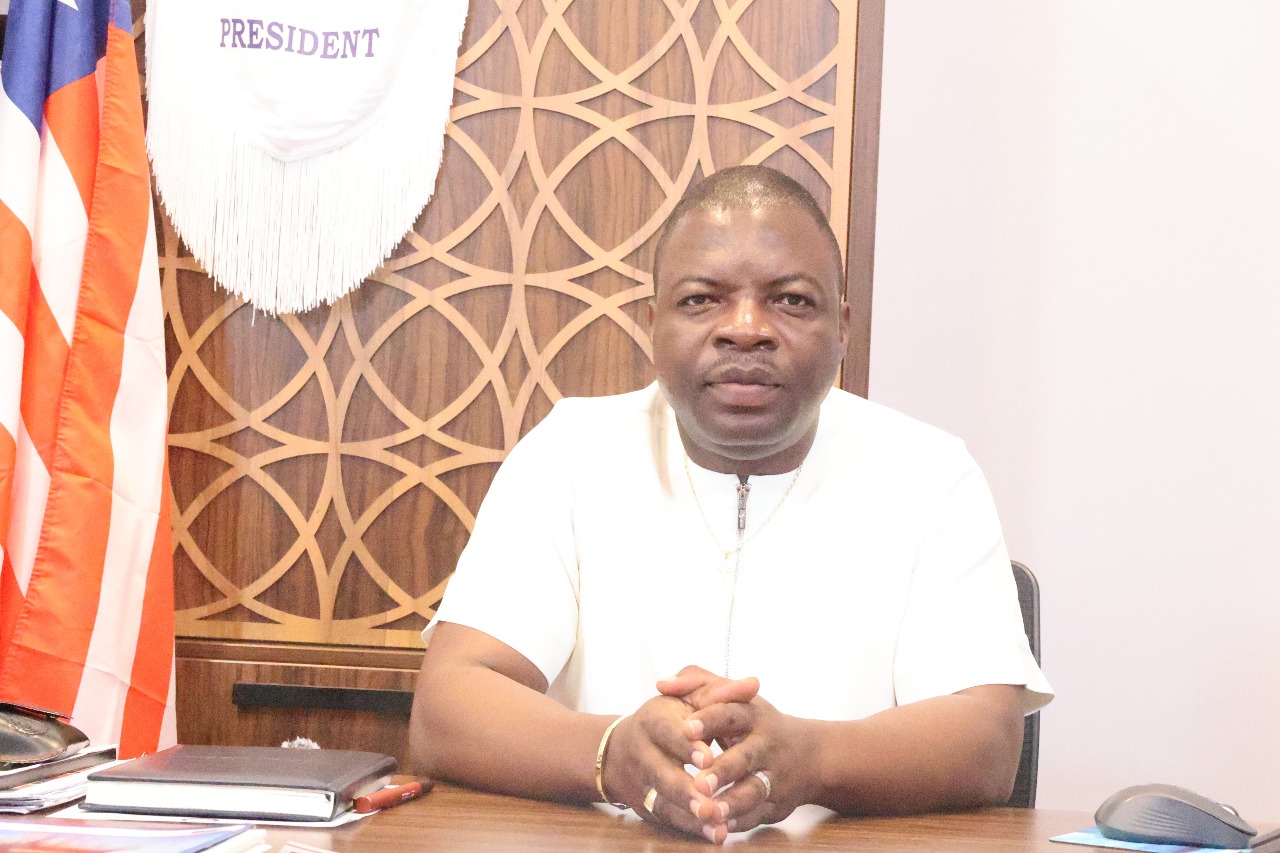The Liberian Fisheries Authority Director General has officially launched a new fisheries project in Monrovia with a call to the European Union to support the University of Liberia Fisheries and Aquaculture Sciences Department to further enhance and strengthen the knowledge gap.
Speaking Tuesday, August 20, 2024, as the Key launcher during the grand launch of an EU-financed project, the Liberia Fisheries Governance Project (LFGP) at a local hotel in Monrovia Madam Emma Metieh Glassco urged the European Union to consider strengthening the human resources capacity of the Fisheries and Aquaculture Department at the University of Liberia in its future agenda.
“We will need additional support for that program from the European Union” Madam Glassco messaged the European Union through its Ambassador who was also part of the ceremony.
At the same time Madam Glassco on behalf of the government of Liberia commended the European Union for what she termed as its strong support to the Liberian Fisheries sector over the past few years.
She disclosed that the European Union is currently supporting the Liberian Fisheries sector with five of its fisheries experts to enhance and strengthen the governance system of the sector, describing the EU as one of Liberia’s strategic partners in the fisheries sector. She also disclosed that the EU has provided technical and sectorial support to the sector.
Speaking earlier the European Union Ambassador accredited to Liberia and the head of Delegation of the European Union to Liberia mentioned that fisheries are a priority sector for both the Government of Liberia and the European Union at the global level, with the European Green Deal and its Farm to fork strategy.
“Fisheries are a priority sector for both the Government of Liberia and the European Union — at the global level, with the European Green Deal and its Farm to Fork Strategy, and at the Delegation level, with dedicated bilateral programs and our TEI on Safe and Sustainable Food Systems”
Ambassador Nona Deprez noted that currently, the Liberian Fisheries sector which provides full or part-time employment for about 37,000 people, 60% of whom are women contributes to approximately 10% of the country’s GDP, and is an important driver for improved nutrition, with about 65% of animal protein consumed in Liberia coming from fish 80 % for the coastal population.
Moreover, Ambassador Deprez mentioned several challenges that threatened to hinder the sector’s development citing climate change as the first. She named sea level rise, coastal flooding, pelagic seaweed invasion, and more frequent, severe, and unpredictable extreme weather events directly threaten Liberia’s coastal population. The EU Ambassador to Liberian also stated that rising ocean temperature, acidification, and current changes affect the quantity and distribution of the fish species.
“Climate change is the first. Sea level rise, coastal flooding, pelagic seaweed invasion, and more frequent, severe and unpredictable extreme weather events directly threaten Liberia’s coastal population. Furthermore, rising ocean temperature, acidification, and current changes affect the quantity and distribution of the fish species”.
At the same time, she pointed out that illegal industrial trawlers within Liberian territorial waters pose another serious challenge to growth in the Liberian Fisheries.
Ambassador Deprez acknowledged that with the new fisheries project, the EU would strengthen the Liberian fisheries sector’s democratic governance and accountability by enhancing the capacities of civil society organizations and the media to safeguard the rights and livelihoods of all fisher folks.
The EU Ambassador further stressed that the importance of involving local fishing communities’ men and women in the fisheries decision-making process cannot be stressed enough.
She noted that local media and CSOs can help promote the collaborative management association (CMA) approach to enhance inclusive resource governance and advocate for the safeguarding of the rights of fisher folks, in particular women, youth, and other marginalized people.
Commenting further the EU Ambassador pointed out that strong political commitment and engagement are needed to secure positive economic and social developments in the fisheries sector, emphasizing that the role of NaFAA will be crucial to enhance awareness of the CMA model among the target CSOs and to support the CSOs in the dissemination of information of the CMA model.
Also speaking at the ceremony was the Environmental Justice Foundation Program Officer Augustine Fayiah who highlighted the critical role his entity has played over the last few years in enhancing and strengthening the fisheries sector through the establishment of the Core Management Association in four counties namely Grand Cape Mount, Margibi, Grand Bassa and Grand Kru.
Mr. Fayiah said the EU-funded Communities for Fisheries Project’s specific objective is to reduce illegal fishing and improve the sustainability of fisheries by expanding and strengthening community co-management associations, creating effective capacity for community monitoring and reporting of illegal fishing.
He said EJF has supported the establishment of 7 CMAs in Liberia covering four coastal counties, including Grand Bassa, Margibi, Grand Kru, and Grand Cape Mount, and set up 32 Village Saving Loan Associations, VSLA.
He concluded his comments by stating that EJF is excited about the potential of the EU-funded Liberia Fisheries Governance project implemented by CERATH and its partners, noting that as two EU-funded projects, both authorities can work together to amplify impact and collectively improve fisheries governance and secure coastal community livelihood.

